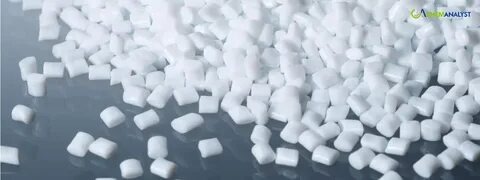-
Feed de Notícias
- ECOSYSTEM
- EXPLORAR
-
Páginas
-
Grupos
-
Eventos
-
Blogs
Bio-based Polytrimethylene Terephthalate (Bio-PTT) Market Expands with Sustainability Push, Innovation, and Growing Industrial Demand

According to DataM Intelligence’s report, Bio-based Polytrimethylene Terephthalate Market Size, Share, Industry Forecast & Outlook (2024-2031), the global bio-based PTT market was valued at about USD 1,182 million in 2024. It is expected to grow to around USD 1,951 million by 2031, showing a CAGR of 7.5-8.2% during this period. In 2025, the market value is estimated to reach USD 1,282 million, driven by growing uses in textiles, automotive, and packaging industries. Bio-based PTT, made from renewable 1,3-propanediol (PDO), is becoming popular as a sustainable, high-performance polymer that cuts down on the use of petrochemical resources while meeting performance demands.
Download your Sample Report Instantly (Corporate Email ID required for priority access):
https://www.datamintelligence.com/download-sample/green-building-materials-market?sv
Key Highlights & Insights
-
Material Advantage: Bio-based PTT exhibits superior elastic recovery, dyeability, and softness compared to petrochemical alternatives, driving adoption in fibers, films, and plastics.
-
Applications: Key sectors include textiles (carpets, apparel, home furnishings), automotive interiors, packaging films, and engineering plastics.
-
Growth Drivers: Rising consumer preference for eco-friendly products, regulatory support for bio-based polymers, and innovation in biopolymer processing technologies.
-
Regional Trends:
-
North America leads with advanced biopolymer research and strategic investments.
-
Europe benefits from strong regulatory incentives for bio-plastics adoption.
-
Asia-Pacific shows the fastest growth, driven by expanding textile production, packaging demand, and government initiatives promoting bio-based chemicals.
-
Recent Developments in 2025
-
In 2025, the market is valued at around USD 1,282 million, reflecting steady expansion from the 2024 base of USD 1,182 million.
-
The market is forecasted to reach USD 1,951 million by 2031, maintaining a CAGR of ~7.5%.
-
Fibers and yarn applications remain dominant, especially in textiles, as leading brands increasingly incorporate bio-based PTT in carpets, sportswear, and home furnishing fabrics.
-
Innovation highlights in 2025:
-
Development of next-generation catalytic processes to reduce production costs and enhance polymer efficiency.
-
Introduction of bio-PTT blends with recycled polymers, balancing sustainability with circular economy principles.
-
Advances in low-carbon production technologies, lowering overall GHG emissions during manufacturing.
-
-
Industry partnerships:
-
Textile producers are partnering with biopolymer firms to launch eco-friendly yarns with better elasticity and dyeability.
-
Automotive OEMs are collaborating with resin suppliers to integrate bio-PTT into lightweight, durable interior components.
-
-
Policy environment: In 2025, governments in Europe and Asia have announced incentives for bio-plastics and green polymer projects, further boosting demand.
Strategic Outlook
To thrive in this evolving market, companies and stakeholders should focus on:
-
Scaling bio-feedstock production (bio-PDO) to ensure reliable, cost-competitive supply chains.
-
Expanding R&D investments to improve polymer performance and explore hybrid blends with recycled or other bio-based plastics.
-
Strengthening certifications and eco-labels to appeal to environmentally conscious consumers and align with global sustainability frameworks.
-
Targeting high-growth regions (Asia-Pacific, Latin America) with cost-effective solutions for textile and packaging industries.
-
Collaborating across value chains – resin suppliers, textile producers, automotive OEMs, and recyclers – to accelerate adoption.
Conclusion
The bio-based PTT market is emerging as a vital part of the global bio-plastics landscape. Its superior mechanical and environmental performance makes it a preferred choice for textiles, packaging, and automotive applications. With rising sustainability commitments, policy incentives, and ongoing innovation, the market is set for strong growth through 2031. Asia-Pacific’s rapid adoption, Europe’s regulatory backing, and North America’s innovation strength will shape the competitive dynamics ahead.
- Art
- Causes
- Crafts
- Dance
- Drinks
- Film
- Fitness
- Food
- Jogos
- Gardening
- Health
- Início
- Literature
- Music
- Networking
- Outro
- Party
- Religion
- Shopping
- Sports
- Theater
- Wellness


